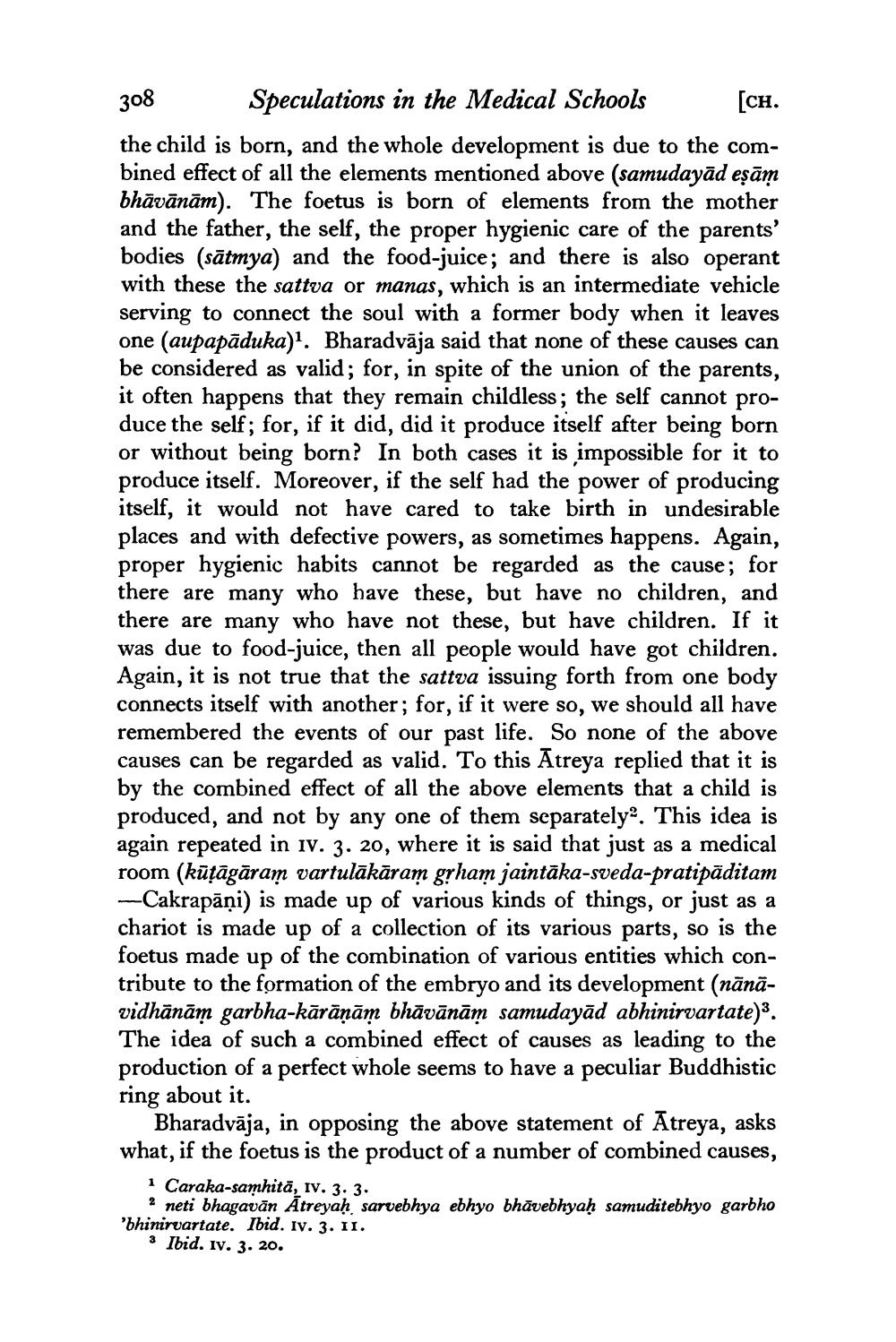________________
308
Speculations in the Medical Schools
[CH.
the child is born, and the whole development is due to the combined effect of all the elements mentioned above (samudayad eṣām bhāvānām). The foetus is born of elements from the mother and the father, the self, the proper hygienic care of the parents' bodies (sātmya) and the food-juice; and there is also operant with these the sattva or manas, which is an intermediate vehicle serving to connect the soul with a former body when it leaves one (aupapaduka)1. Bharadvāja said that none of these causes can be considered as valid; for, in spite of the union of the parents, it often happens that they remain childless; the self cannot produce the self; for, if it did, did it produce itself after being born or without being born? In both cases it is impossible for it to produce itself. Moreover, if the self had the power of producing itself, it would not have cared to take birth in undesirable places and with defective powers, as sometimes happens. Again, proper hygienic habits cannot be regarded as the cause; for there are many who have these, but have no children, and there are many who have not these, but have children. If it was due to food-juice, then all people would have got children. Again, it is not true that the sattva issuing forth from one body connects itself with another; for, if it were so, we should all have remembered the events of our past life. So none of the above causes can be regarded as valid. To this Atreya replied that it is by the combined effect of all the above elements that a child is produced, and not by any one of them separately. This idea is again repeated in IV. 3. 20, where it is said that just as a medical room (kūṭāgāram vartulākāram gṛham jaintāka-sveda-pratipäditam -Cakrapāņi) is made up of various kinds of things, or just as a chariot is made up of a collection of its various parts, so is the foetus made up of the combination of various entities which contribute to the formation of the embryo and its development (nānāvidhānām garbha-kārāṇām bhāvānām samudayād abhinirvartate)3. The idea of such a combined effect of causes as leading to the production of a perfect whole seems to have a peculiar Buddhistic ring about it.
Bharadvaja, in opposing the above statement of Atreya, asks what, if the foetus is the product of a number of combined causes,
1 Caraka-samhita, IV. 3. 3.
2 neti bhagavan Atreyaḥ sarvebhya ebhyo bhāvebhyaḥ samuditebhyo garbho 'bhinirvartate. Ibid. Iv. 3. II.
3 Ibid. IV. 3. 20.




